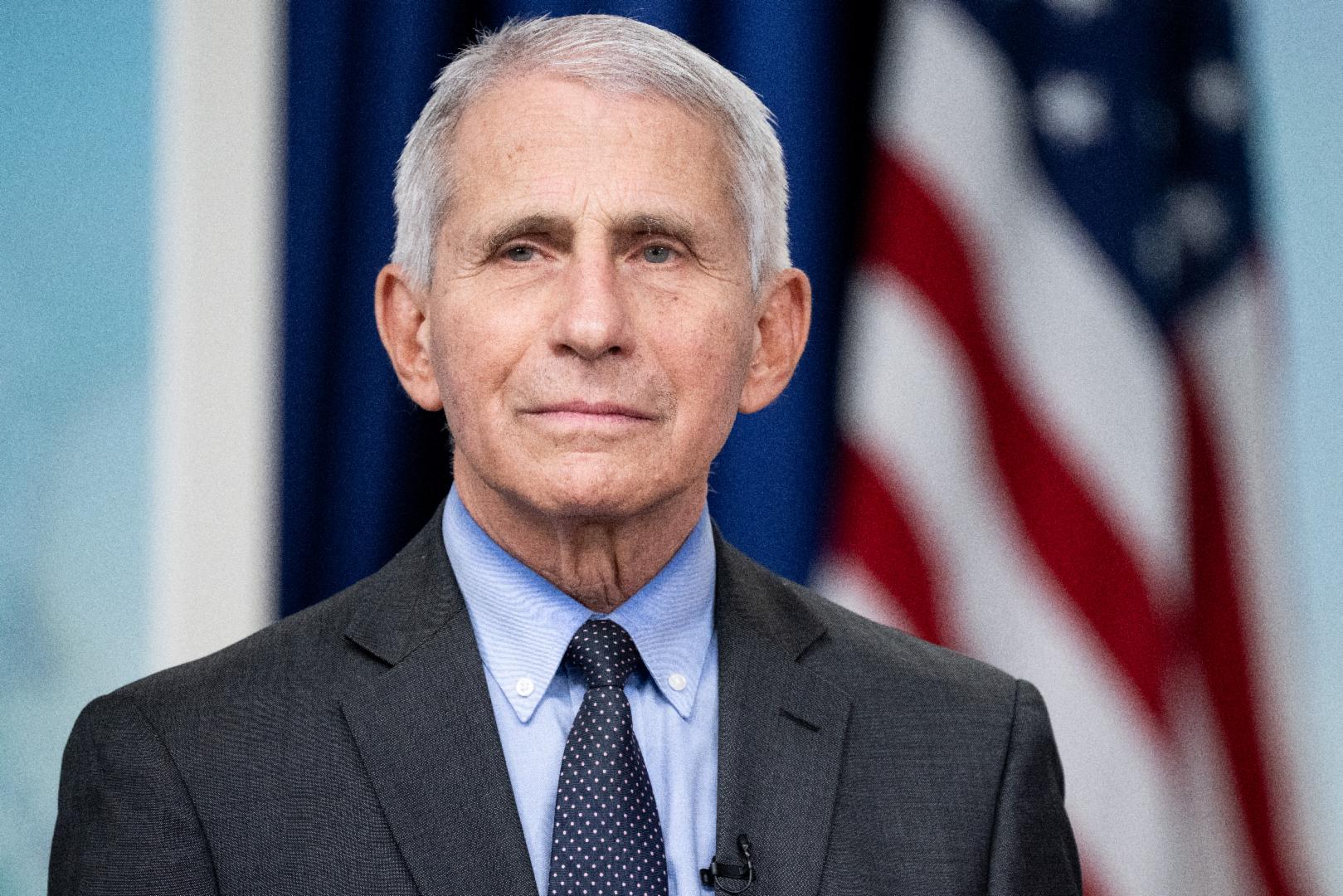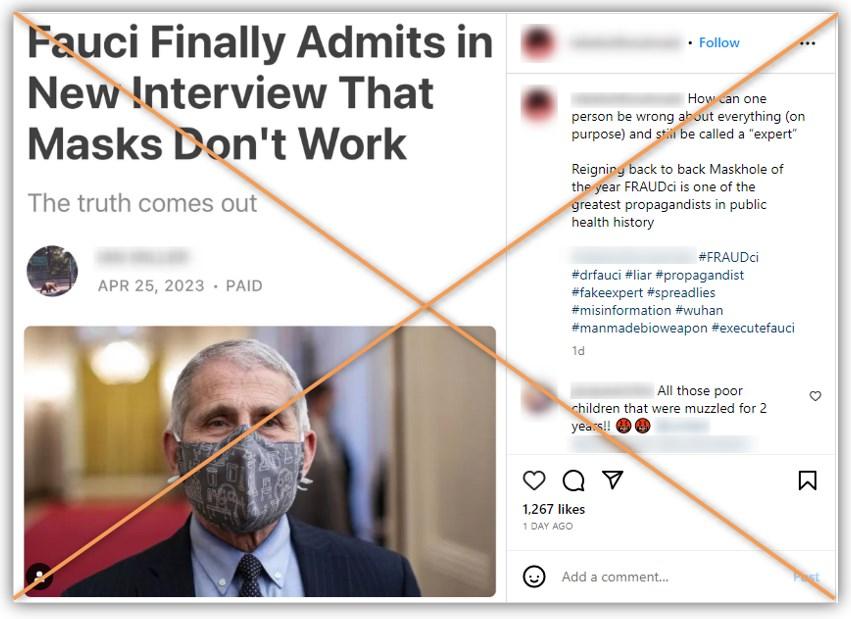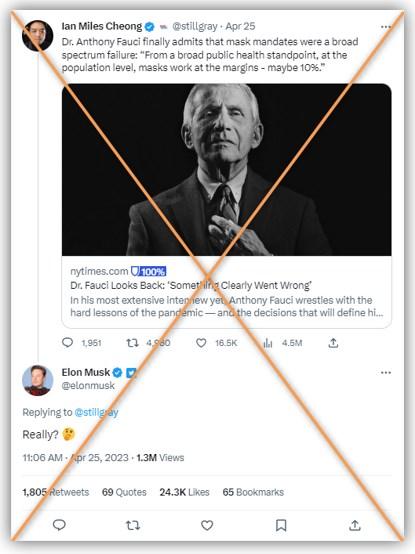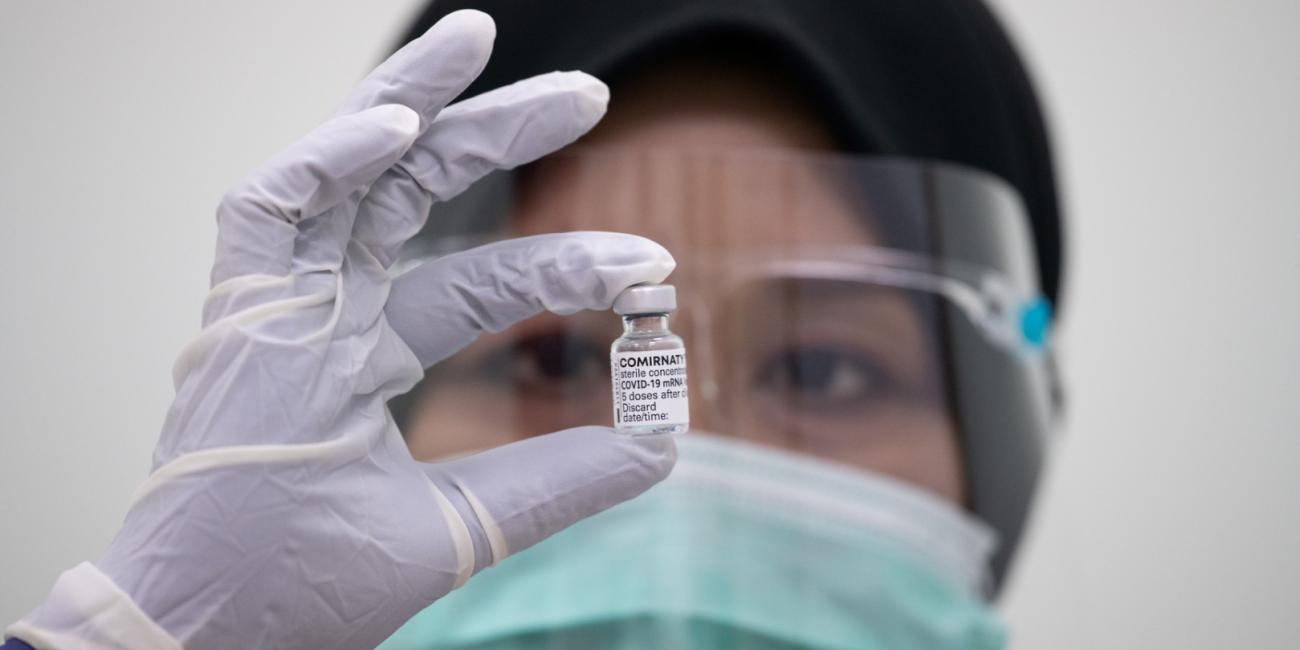
Fauci mask comments misrepresented online
- This article is more than two years old.
- Published on April 27, 2023 at 23:00
- 3 min read
- By Bill MCCARTHY, AFP USA
"Fauci Finally Admits in New Interview That Masks Don't Work," says an April 25, 2023 Substack headline shared widely on Instagram.

Similar posts spread elsewhere on Instagram and other platforms, amplified by radio host Clay Travis, former Fox News host Megyn Kelly and far-right commentator Ian Miles Cheong.
"Dr. Anthony Fauci finally admits that mask mandates were a broad spectrum failure: 'From a broad public health standpoint, at the population level, masks work at the margins -- maybe 10%,'" Cheong said in an April 25 tweet.
Twitter owner Elon Musk, who has frequently promoted misinformation on the platform and previously called for Fauci's prosecution, replied: "Really?"

But the posts take Fauci's comments to the New York Times Magazine columnist David Wallace-Wells out of context, omitting part of his response to a question about masking.
What Fauci said
Until December 2022, Fauci was head of the National Institute of Allergy and Infectious Diseases and President Joe Biden's chief medical advisor. He was the face of the US pandemic response under both Biden and former president Donald Trump, making him a frequent target of online misinformation.
The comment drawing attention on social media came when Wallace-Wells asked Fauci whether "culture-war fights over masking" in the United States were "worth it," given the effect they might have later had on vaccine uptake among conservatives. Wallace-Wells said the science shows masks work but are not perfect, citing research from Bangladesh.
Fauci responded: "It's a good point in general, but I disagree with your premise a bit. From a broad public-health standpoint, at the population level, masks work at the margins -- maybe 10 percent. But for an individual who religiously wears a mask, a well-fitted KN95 or N95, it's not at the margin. It really does work."
He added that "because of the culture wars you're talking about, there are people who are not going to make use of an intervention that could have saved their lives."
Fauci separately described masks as essential in the interview when he spoke about the early days of the coronavirus.
"It fooled us in the beginning and confused us about the need for masks and the need for ventilation and the need for inhibition of social interaction," he said.
The doctor never mentioned mask mandates.
Studies on masking
The Bangladesh study referenced in the exchange looked not at the effectiveness of masks themselves but at the impact of "strategies that can persistently increase mask-wearing."
The study found "promoting community mask-wearing can improve public health."
"Villages where in-person reinforcement of mask-wearing occurred also showed a reduction in reporting Covid-like illness, particularly in high-risk individuals," the authors wrote.
The study was one of several included in a January 2023 review by Cochrane, a British nonprofit that summarizes the results of medical research. The paper was misrepresented online by social media users who claimed it determined masks were ineffective.
"Many commentators have claimed that a recently-updated Cochrane Review shows that 'masks don't work', which is an inaccurate and misleading interpretation," Karla Soares-Weiser, the organization's editor-in-chief, said in a March 2023 press statement.
She added that people not wearing masks consistently is one reason why efforts to promote such coverings may have a limited impact.
A February 2022 report from the US Centers for Disease Control and Prevention (archived here) found persistent use of a mask in indoor public settings was associated with lower chances of contracting Covid-19. The agency recommends masks in certain situations, including for people at high risk of serious Covid-19 illness or in places where the virus is spreading widely.
AFP has fact-checked other Covid-19 misinformation here.
Copyright © AFP 2017-2026. Any commercial use of this content requires a subscription. Click here to find out more.
Is there content that you would like AFP to fact-check? Get in touch.
Contact us




